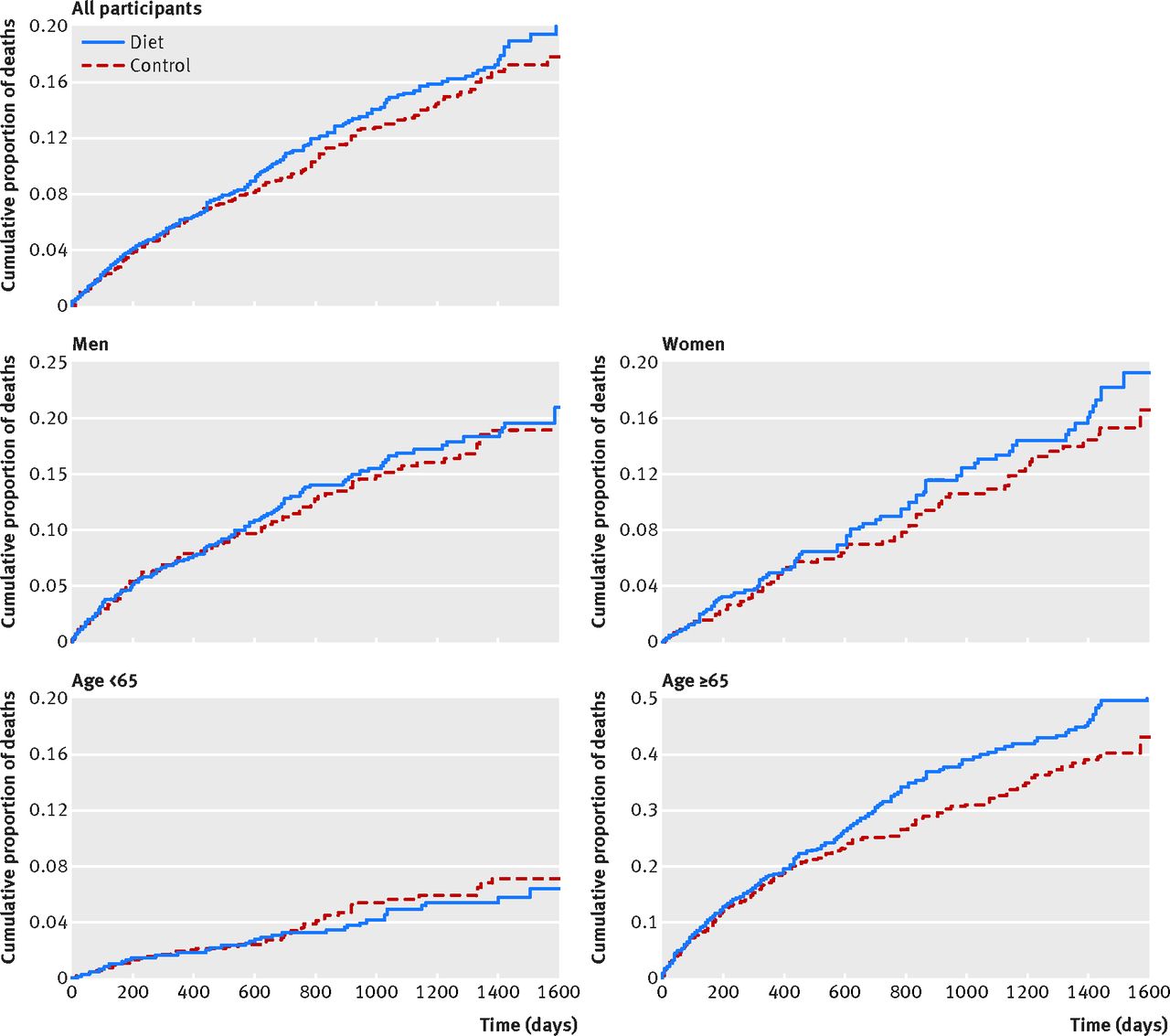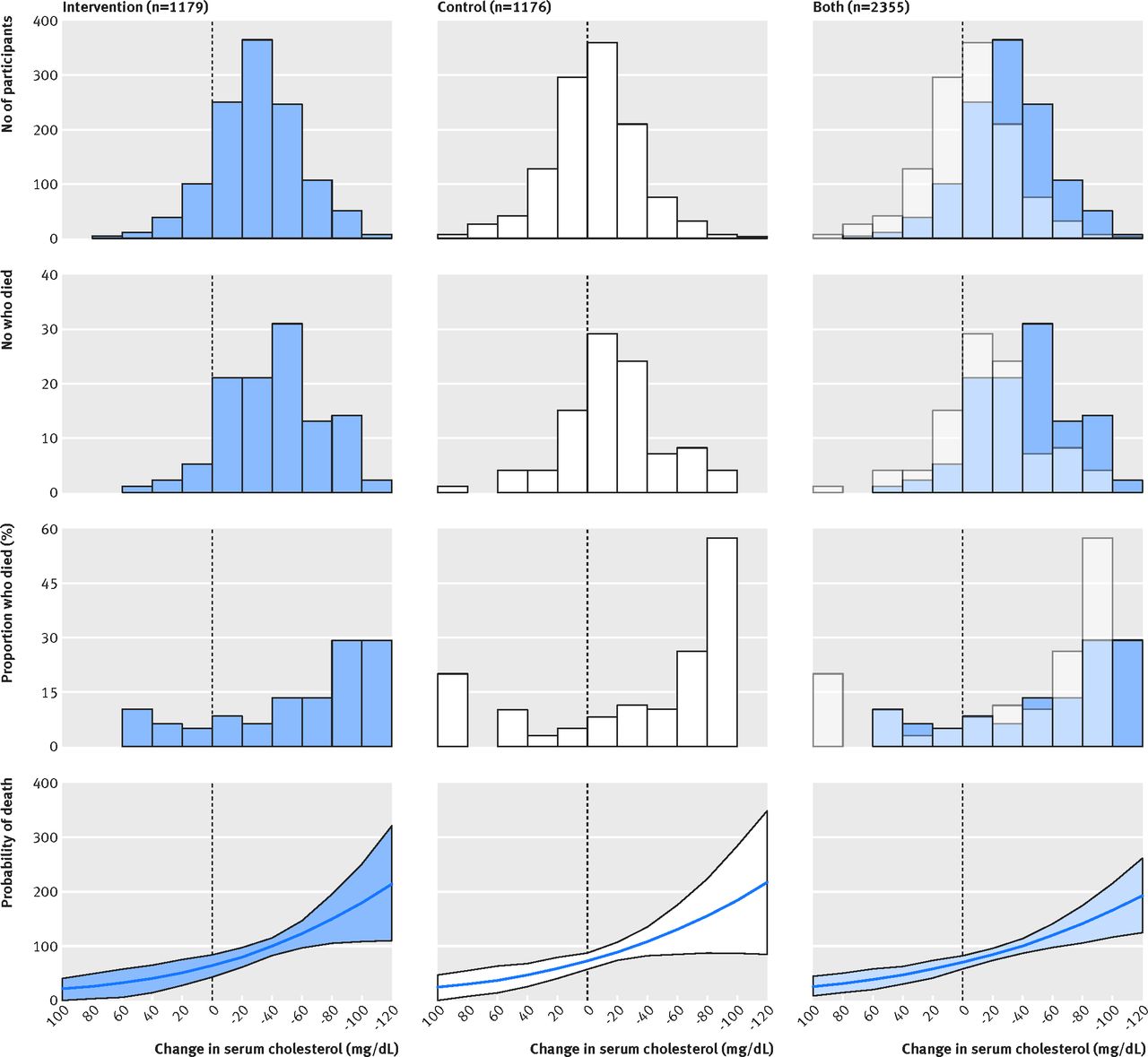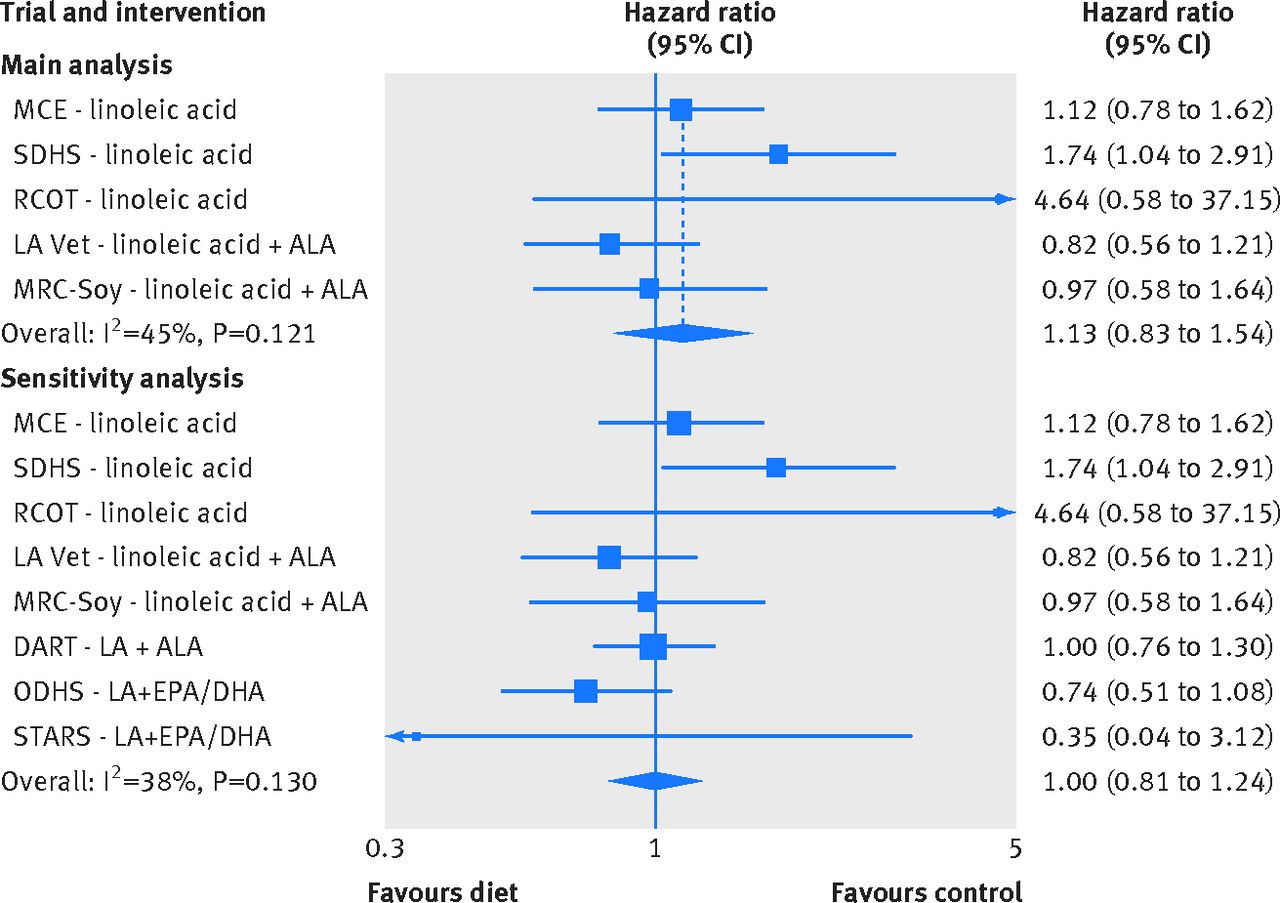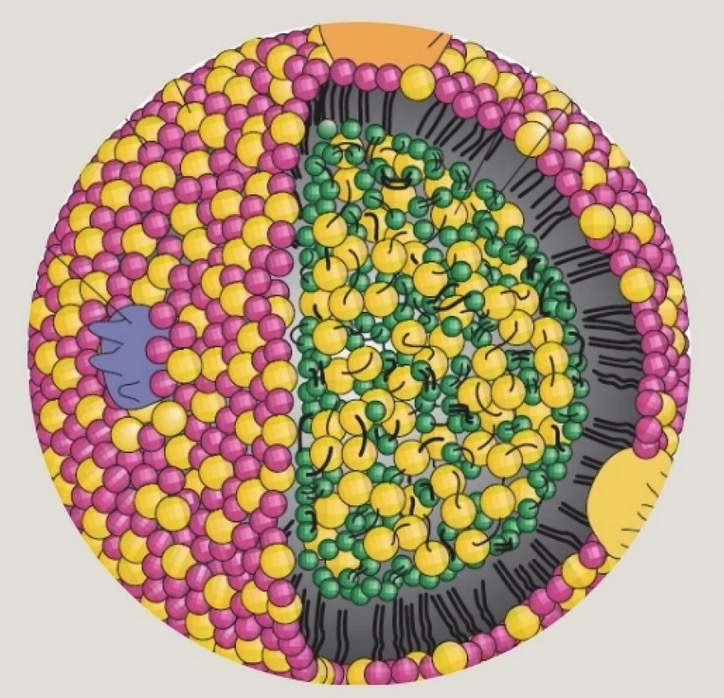TLDR - Saturated Fat is good for you. Linoleic acid (seed oils, vegetable oils) oils are bad for you.
https://doi.org/10.1136/bmj.i1246 (full paper)
The MCE (1968-73) is a double blind randomized controlled trial designed to test whether replacement of saturated fat with vegetable oil rich in linoleic acid reduces coronary heart disease and death by lowering serum cholesterol. Recovered MCE unpublished documents and raw data were analyzed according to hypotheses prespecified by original investigators. Further, a systematic review and meta-analyses of randomized controlled trials that lowered serum cholesterol by providing vegetable oil rich in linoleic acid in place of saturated fat without confounding by concomitant interventions was conducted.
The intervention group had significant reduction in serum cholesterol compared with controls (mean change from baseline −13.8% v −1.0%; P<0.001). Kaplan Meier graphs showed no mortality benefit for the intervention group in the full randomized cohort or for any prespecified subgroup. There was a 22% higher risk of death for each 30 mg/dL (0.78 mmol/L) reduction in serum cholesterol in covariate adjusted Cox regression models (hazard ratio 1.22, 95% confidence interval 1.14 to 1.32; P<0.001). There was no evidence of benefit in the intervention group for coronary atherosclerosis or myocardial infarcts. Systematic review identified five randomized controlled trials for inclusion (n=10 808). In meta-analyses, these cholesterol lowering interventions showed no evidence of benefit on mortality from coronary heart disease (1.13, 0.83 to 1.54) or all cause mortality (1.07, 0.90 to 1.27).
Available evidence from randomized controlled trials shows that replacement of saturated fat in the diet with linoleic acid effectively lowers serum cholesterol but does not support the hypothesis that this translates to a lower risk of death from coronary heart disease or all causes.
It’s nuts that there have now been two cases just like this. This one and the Sydney diet heart study both came out opposite to what the researchers hoped and they shelved them
So two have been found, out of we have no idea how many.
Any controversial research - diet and medication included - should have to be registered before they start and publishing (and including whatever data they collected, not just the stuff that informed what they published) should be mandatory
100%. Human bias can impact good science! Add money, pride, and industrial influence and it can become systematic
Notes:
This is a real banger, two RCTs didn’t publish all of their data which showed seed oils increased cardio vascular risk. Academic fraud.
Our recovery and 2013 publication of previously unpublished data from the Sydney Diet Heart Study (SDHS, 1966-73) belatedly showed that replacement of saturated fat with vegetable oil rich in linoleic acid significantly increased the risks of death from coronary heart disease and all causes, despite lowering serum cholesterol.
They redid the original studies math using ALL the data and came up with contradictory findings.
Liquid corn oil was used in place of the usual hospital cooking fats (including hydrogenated oils) and was also added to numerous food items (for example, salad dressings, filled beef (lean ground beef with added oil), filled milk, and filled cheeses). Soft corn oil polyunsaturated margarine was used in place of butter. This intervention produced a mean reduction in dietary saturated fat by about 50% (from 18.5% to 9.2% of calories) and increased linoleic acid intake by more than 280% (from about 3.4% to 13.2% of calories)
the control diet did not change saturated fat intake but did substantially increase linoleic acid intake (by about 38%, from 3.4% to 4.7% of calories).
Ooph, talk about mixing variables.
As predicted, participants in the intervention group significantly lowered serum cholesterol compared with the control group (P<0.001) and compared with baseline
Seed oils lower cholesterol! It works
figure 5 - risk of death

MCE participants with greater reduction in serum cholesterol, however, had a higher rather than a lower risk of death.
figure 6 - death vs serum cholesterol

figure 7 - meta-analysis of RCT hazard ratios for different fats

Fig 7 Meta-analysis for mortality from coronary heart disease in trials testing replacement of saturated fat with vegetable oils rich in linoleic acid. Main analysis: trials provided replacement foods (vegetable oils) and were not confounded by any concomitant interventions. Sensitivity analysis: includes trials that provided advice only and/or were confounded by addition of n-3 EPA and DHA. Risk ratios were used as estimates of hazard ratios in MCE, RCOT, LA Vet, and MRC-Soy. MCE=Minnesota Coronary Experiment; SDHS=Sydney Diet Heart Study; RCOT=Rose Corn Oil Trial; LA Vet=Los Angeles Veterans Trial; MRC-Soy=Medical Research Council Soy Oil Trial; DART=Diet and Re-infarction Trial; ODHS=Oslo Diet Heart Study; STARS=St. Thomas Atherosclerosis Regression Study; LA=linoleic acid; SFA=saturated fat; ALA=α linolenic acid; EPA=eicosapentaenoate; DHA=docosahexaenoate
Am I reading fig 6 correctly:
- The more they lowered the cholesterol* of the experiment group the more likely they were to die
- The more the control group’s cholesterol* went down the more likely they were to die
The population of the study were more likely to survive the more cholesterol* they had
*actually lipoproteins - and given the date of the original data “total cholesterol” with no differentiation between HDL and the various sizes of LDL
Aside: Do you know why we call the lipoproteins “cholesterol”, is it that they were originally thought to be free cholesterol?
Am I reading fig 6 correctly:
Yes, that is 100% accurate. The lower the cholesterol the higher the death rate. That is a very sad slide
Cholesterol
When lipo proteins leave the liver they are completely filled with cholesterol. As they deliver cholesterol around the body, they shrink. So VLDL into IDL into LDL.
I think the word cholesterol is just used as a shorthand. And then lay people just talk about it like cholesterol. It’s not wrong, it’s also not totally correct. Damaged LDL has no cholesterol inside of it anymore. And is very tiny.

